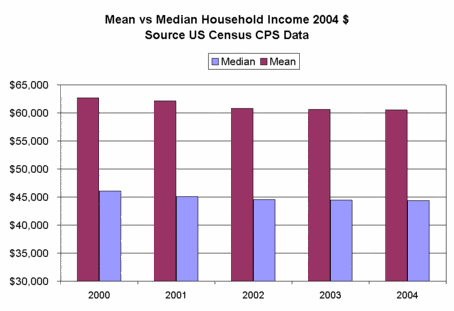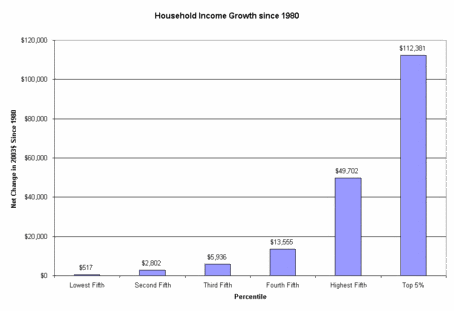Thomas Kostigen at Marketwatch says:
If nothing else, the U.S. holds the secret elixir to safety. China can't claim to be a safe haven yet. And some European countries have even intimated they'd like to eliminate the euro; that doesn't send a strong signal.
The U.S. always has and is the place to be. People and money flock to our borders. That isn't going to change overnight, or even this year. As much as people want other countries to win, the U.S. is ranked No. 1 in the currency-of-choice game and can't be counted out of the competition yet.
Indeed, short-term bond yields have been rising lately. That means traders are less confident Bernanke will hold interest rates steady; he may initiate a rate hike or two. This would compel some overseas investors to buy more dollars.
You can bet Soros, Buffett, et al. will be cheering for every one else in this year's economic competition.
I'll be rooting for the top dog/underdog, which seems the most befitting way to describe the U.S. today. The U.S. dollar is still the gold-medal holder on this podium.
Well, that made my flag nice and ... insert appropriate disparaging remark about jingoism here.
Jerome a Paris provides the counter argument much better than Kostigen's straw-man; commenting on another article in the same vein:
But the core of [this] article, which basically repeats the current common wisdom, is that the bears (like me) have been spending the past year or more warning of impending doom and we see the exact opposite happening, so we are not credible. At the same time, our arguments (global imbalances are unsustainable, there is a housing bubble, even peak oil) are entering the mainstream and are at least being acknowledged and discussed, if only to refute them, and the above example is typical.
The logic is as follows:
The most extravagant example of the above kind of thinking has been the new theory of "dark matter" to explain away the fact that the US still earned, until recently, net positive income on its international investments, despite having become a net debtor to the world.
- your arguments are rational and make a lot of sense, it's worrying
- but US growth and unemployment are doing great!
- therefore all is fine, and your points are not valid
and the kicker:
- we're in a new kind of economy: financial markets are behaving differently, and the US economy is in a new kind of phase.
sometimes accompanied by the grand finale
- with your stagnant economies, high unemployment and Muslim rioting, you'd better be happy that the US economy is growing, we're pulling you and it would be even worse if it stopped (and you'd better be grateful that we are waging war on the infidels for you, also).
The simple explanation is that US companies own factories, and other companies overseas, and tend to hide revenues over there to pay less tax, whereas foreigners invest mostly in low paying Treasuries. That was brushed aside to provide for "dark matter", a new, invisible class of US assets that supposedly brings income of the US as if by magic... You can read a summary by the authors here and, if you are brave, their full paper here (pdf), and some debunkings here by the Economist (which is still sane about these things) and here by Brad Setser.
Essentially, the arguments boil down to two things:
Your big theories are fine, but the facts on the ground say otherwise. Thus the bear fatigue of the mainstream press, who thought it had a good story with these big scary news and sees headlines that scream otherwise.
- US growth is strong (of course, the last quarter was a temporary blip)
- the US easily finances its external deficits
- thus there is nothing to worry.
So, again, let me make the bearish case with the help of the FT and the Economist, which still provide nice graphs despite propagating the ideology of the kleptocracy:
As a trader quoted by the FT (from where I took some of the above graphs) says:
- the economy is only doing well because the rich are doing great and pulling the GDP number up, while the great unwashed masses stagnate. The graph below (from btower in my diary yesterday on inequality) shows that both the average and the median household have gone down in recent years
in a context of increasing incomes for the rich, it means that the middle classes have actually gone a lot poorer;
- that empoverishment has been hidden by the ability of many to go deeper in debt and/ot to borrow against the nicely inflated value of their house. Household debt has reached the record level of 124% of the average income (and, as you can see above, the average ('mean') is much higher than the median, which means that the average debt is something like 170% of median income (edited)- which is not such an invalid comparison as the poor are certainly more indebted than the very rich relative to their income)
in other words, the debt situation has worsened in the past year, since that graph was made, and the corollary is what the top graph shows: no savings anymore;
- these incredible levels of debt have been made possible by the absurdly low nominal interest rates, both for short term borrowings (used for variable rate loans) and long term borrowing (used for fixed rate loans). The rates have been pushed down by the Fed's incredibly lax interest rate policy in 2001-2004, which has literally flooded the planet with cheap money, which has been used to buy assets, whode prices have gone up. Gold has gone up. real estate has gone up, financial assets (like bonds) have gone up (and thus yields down), and some, like Stirling, say additionally that oil prices have gone up for the same reason (which makes sense, but is hard to "prove"). This is the mother of all bubbles, and we are all floating happily on the surface of that wave of money;
- the problem, of course, is that this wave is now beginning to recede. The Fed, seeing "growth", has finally begun to tighten, oh so prudently, interest rates, so at least no new fuel is added to the fire. But so much money was added in previous years that lots of it is still sloshing around and keeping long term interest rates down. The Chinese buy Treasuries to keep the yuan weak and protect their exports and their growth, and oil exporters buy Treasuries because they have so many dollars from high oil prices that there is little else they can do than buy some.
- the result is what is called an inversion of the yield curve, when long term rates become lower than short term rates. You get a better return by lending short term, because people want long term assets rather than short term ones, to "lock in" the current rates, expected to still go down because of fears of a recession.
Historically, yield curve inversions have been followed by recessions most of the time:
I feel like Bill Murray in Groundhog Day," says David Rosenberg, North American economist at Merrill Lynch. "I remember all too well clients telling me in 2000 that it was different this time and asking how you could square the yield curve inversion with the Nasdaq over 5000."The curve was inverted in March 2000 when the internet-fuelled boom propelled the Nasdaq stock market to its peak. At the time, the economy and the stock market seemed indomitable. But once the bubble in technology stocks burst, the economy slid into recession in 2001 as the Fed cut rates. Nasdaq investors had been wrong. The bond market had got it right.
And remember just one thing - if analysts and other finance types tell you that the economy is doing great, it's probably because they belong in the right hand column in this last graph (again from btower):
Meanwhile, the left hand column will feel the rocks first when the wave recedes (bankruptcies! evictions! unemployment!) But they're just losers, and probably un-American, right? Why should we care about them?
That means the dollar's going down, the economy's going down, etc. etc.
To be fair, though, Paul B. Farrell provides counterpoint to Kostigen on Marketwatch:
Denial blinds us to many dangers. Like the coming Iranian Petro-Euro Bourse threatening the American dollar's position as the world's reserve currency, a threat potentially more catastrophic than a nuclear arsenal. We deny it.And recently, we learned of an even bigger threat: about World War III. Seriously, a war is being provoked by loose cannons in America as well as abroad. Irrational, absurd and unwanted, fanatics on both sides are prophesizing an all-out war in the next couple years.For years America has heard religious fundamentalists predict the "End of Days," Armageddon, an Apocalypse, The Rapture, Tribulation, a final battle prophesized for the Holy Land. Prominent evangelists believe it's coming soon. Many are so convinced their rhetoric may be a self-fulfilling prophecy.Until recently this was outside market and economic thinking. That is, until Iranian President Ahmadinejad addressed the United Nations in October. His prophecies mirror those of America's evangelists. Ahmadinejad not only hopes for but is trying to provoke both the free world and Islam into war.Iran's "End-of-Days:" Ahmadinejad passionately believes that in the next couple years the world will witness the "second coming" of the Mahdi, a messianic "hidden 12th imam" of Shiite Islam, prophesized to appear at the "End of Days." Ahmadinejad even embraces his "divine mission" to "pave the way" for the second coming.Get it! We have ideological fanatics on both sides, like two alcoholics itching for a bar fight. Both sides want a global war, provoking enemies and allies alike. Both pray for an irrational first blow triggering the "End of Days," a WW III nuclear conflict between the world's greatest cultures. Both expect fulfillment of ancient prophecies. Both want a war to end all wars, and the end of the world as we know it.Irrational? Probably. But remember, these high-risk variables are not programmed into America's economic models and market forecasting systems that Washington, Wall Street and Corporate America throw at you every day. Yet in the hands of fanatics these variables can trigger events that can easily overwhelm entire economies and markets.
A cynic might say that "these high-risk variables" are programmed into some folks' economic models...which is why they want to trigger their existence.
Me? I've got to hedge into the possibility that "these high risk variables" kick in.







No comments:
Post a Comment